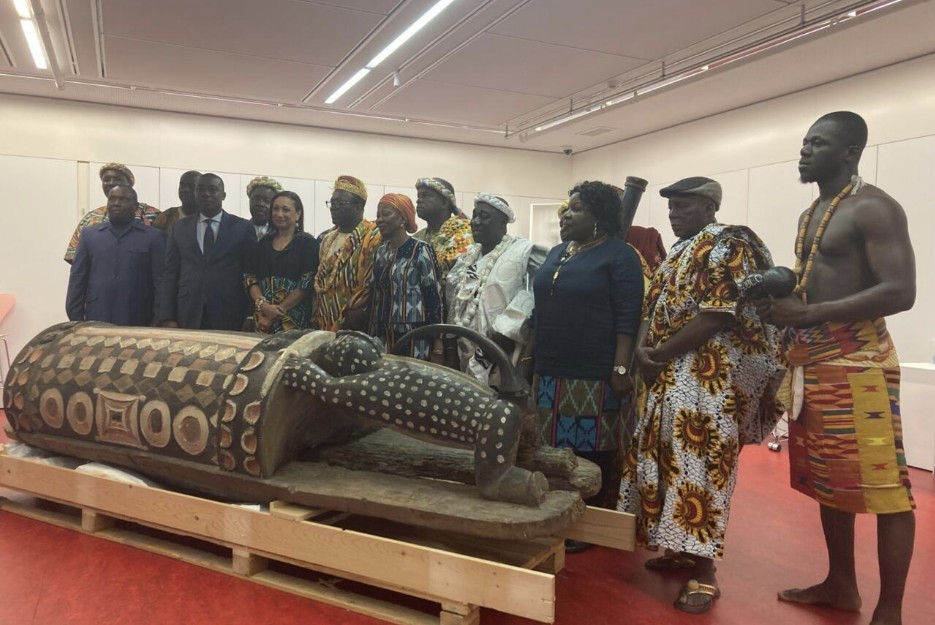Another Olympiad, another set of human rights violations
- Tanisha Choudhury
- Jul 26, 2021
- 3 min read
When I think back to the 2016 Rio de Janeiro Olympics, rather than flashes of athletes biting their newly polished medals, a juxtaposing image of a shiny stadium built brand new, standing in the midst of a sea of Brazilian favelas comes to mind. A setting so surreal, it’s almost as if the lit-up Olympic size stadium was picked up from elsewhere and dropped right in the centre of the neglected slums of Brazil.
In the background of this image lies a much more morbid truth often ignored by Olympic fanatics – the rapid gentrification, forced evictions of over a million people, police violence and the exploitative labour conditions that have permeated Brazil’s recent past in exchange for a short-lived prestigious sporting event that will be forgotten by the end of the year.
And after four years, again, we find ourselves living through the Tokyo Olympics in COVID-ridden 2021. Careful not to break its historical streak, the Olympics this year too, is accompanied with a potentially growing stream of human rights violations that continue to go - largely - unnoticed.
Violence follows wherever the Olympics go
In preparation of the 2020 Tokyo Olympics which was later postponed to 2021 due to the Coronavirus pandemic, Human Rights Watch published shocking findings in their report titled ‘I was hit so many times I can’t count’ which revealed that 800 Japanese child athletes, including Olympians and Paralympians, were victim to physical, sexual and verbal coach abuse. The abuse was so extreme, it even became fatal in some cases.
We don’t need to look too closely to detect that violence is a common theme often associated with the background operations of the Olympics. During the Rio de Janeiro Olympics, part of Brazil’s war on drugs, police violence against mostly young black Brazilian men surged to an all time high as the Brazilian government assured the International Olympics Committee that Rio de Janeiro was a safe city to host the Olympics in. In preparation for the major sporting event as well as during the games, over fifty lives fell victim to police violence.
“The International Olympic Committee and other sport organizing bodies must not allow these events to be held at the expense of people’s human rights,” said Atila Roque, Executive Director at Amnesty International Brazil.
The silencing of the people
In the stadium, as roaring crowds from all parts of the world were packed inside cheering on their nation’s best, outside, the Brazilian police were violently repressing peaceful public protests in response to the deaths incited by police brutality.
The crowds inside, passionate yet clueless that lethal weapons including tear gas and stun grenades were being used to silence the Brazilian people who peacefully demanded for the end to police violence given rise due to the Olympics.
Perhaps the government’s tendency to turn a blind eye to the demands of their own people and rather prioritise a global event is another common occurrence in the game of the Olympics. With more than 80% of the Japanese people expressing they did not want this year’s Olympics to commence while the country is still suffering from constant COVID spikes, the Japanese government still gave the games the green light.
When it’s not ignoring the demands of the people, it’s suppressing them instead. During the Beijing games in 2008, criticism towards the Chinese government and the Olympics followed a mass arrest of civilians, media censorship and arbitrary arrests of journalists, and constant harassment.
Similar events followed during the Sochi games in 2014 with forced evictions, abuse towards migrant workers and discrimination against the LGBTQ+ communities.
“Time after time, Olympic hosts have gotten away with abusing workers building stadiums, and with crushing critics and media who try to report about abuses,” said Minky Worden, director of global initiatives at Human Rights Watch.
With the Tokyo games still in its early stages, we may not yet be aware of the stream of human rights violations that take place every Olympiad, however, it is time that we look beyond the swimming races and marathons on our TV screen and recognise the violations of millions of human lives that take place behind the scenes.





Comments